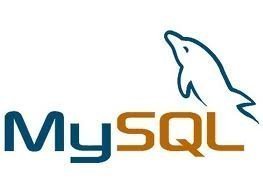Data Management is a broad field of study, but essentially is the process of managing data as a resource that is valuable to an organization or business. One of the largest organizations that deal with data management, DAMA (Data Management Association), states that data management is the process of developing data architectures, practices, and procedures dealing with data and then executing these aspects on a regular basis.
There are many topics within data management, some of the more popular topics include data modeling, data warehousing, data movement, database administration, and data mining.
Data Modeling
Data modeling is first creating a structure for the data collected and using and organizing this data in a way that is easily accessible and efficient to store and pull the data for reports and analysis. In order to create a structure for data, it must be named appropriately and show a relationship with other data. It also must fit appropriately in a class. For instance, with a database of media, users might have a hierarchical structure of objects that include photos, videos, and audio files. Within each category, users can classify objects accordingly.
Data Warehousing
Data warehousing is storing data effectively so that it can be accessed and used efficiently. Different organizations collect different types of data, but many organizations use their data the same way in order to create reports and analyze their data to make quality business decisions. Data warehousing is usually an organizational wide repository of data. However, for very large corporations it can encompass just one office or one department.
Data Movement
Data movement is the ability to move data from one place to another. For instance, data needs to be moved from where it is collected to a database and then to an end user, but this process takes quite a bit of logistic insight. Not only do all hardware, applications, and data collected need to be compatible with one another, they must also be able to be classified, stored, and accessed with ease within an organization. Moving data can be very expensive and can require lots of resources to make sure that data is moved efficiently and is secure in transit, and that once it reaches the end user it can be used effectively either to be printed out as a report, saved on a computer, or sent as an email attachment.
Database Administration
Database administration is extremely important in managing data. Every organization or enterprise needs database administrators that are responsible for the database environment. Database administrators are usually given the authority to do tasks that involve recoverability, integrity, security, availability, performance, and development & testing support.
Recoverability is usually defined as a way to store data as back up and then test the back ups to make sure that they are valid. The task of integrity means that data that is pulled for certain records or files are in fact valid and have high data integrity. Data integrity is extremely important especially when creating reports or when data is used for analysis. If data is deemed invalid, the results will be worthless.
Database security is an essential task for database administrators. For instance, database administrators are usually in charge of giving clearance and access to certain databases or trees in an organization. Another important task is availability. Availability is defined as making sure a database is up and running. The more the up time, the higher the productivity level. Performance is related to availability and requires getting the most out of the hardware, applications, and data as possible. Performance is usually in relation to an organization’s budget, physical equipment, and resources.
Finally, a database administrator is usually involved in database development and testing support. Database administrators are always trying to push the envelope, trying to get more use out of the data, and adding better performing and more powerful applications, hardware, and resources to the database structure. A database that is administered correctly is not only a sign of a competent database administrator, but it also means that all end users have a huge resource in the data that is available. This makes it easy to create reports, conduct analysis and make high quality decisions based on data that is collected and used within the organization.
Data Mining
Another important topic regarding data management is data mining. Data mining is a process in which large amounts of data are sifted through to show trends, relationships, and patterns. Data mining is a crucial component to data management because it exposes interesting information about the data being collected. It is important to note that data is primarily collected so it can be used to find these patterns, relationships, and trends that can help a business grow or create profit.
While there are many topics within data management, they all work together from the beginning where data is collected to the end of the process where it is sifted through, analyzed, and formatted so that specialists can then make quality decisions based upon it.




Dinesh Sharma
This is a very good information.Now,I have clear about Data Management.
Dinesh Kumar
Nice information. till now i am clear. Please keep up the good way.
Regards,
Informaticsoutsourcing
Meg
This is all very helpful information. How can one go about getting trained in data management?
Anthony
great read!! I have used most of the extracts as guideline for my thesis